 Rooms
Rooms
Are
Never
Finished Poems Agha Shahid Ali  W. W. Norton & Company New York London Adjusting type size may change line breaks. Landscape mode may help to preserve line breaks. Also by Agha Shahid Ali POETRY Call Me Ishmael TonightThe Country Without a Post OfficeThe Belovd Witness: Selected PoemsA Nostalgists Map of AmericaA Walk Through the Yellow PagesThe Half-Inch HimalayasIn Memory of Begum Akhtar & Other PoemsBone-Sculpture TRANSLATION The Rebels Silhouette:Selected Poems (Faiz Ahmed Faiz) OTHER T. S.
W. W. Norton & Company New York London Adjusting type size may change line breaks. Landscape mode may help to preserve line breaks. Also by Agha Shahid Ali POETRY Call Me Ishmael TonightThe Country Without a Post OfficeThe Belovd Witness: Selected PoemsA Nostalgists Map of AmericaA Walk Through the Yellow PagesThe Half-Inch HimalayasIn Memory of Begum Akhtar & Other PoemsBone-Sculpture TRANSLATION The Rebels Silhouette:Selected Poems (Faiz Ahmed Faiz) OTHER T. S.
Eliot as EditorRavishing DisUnities: Real Ghazals in English (Editor) Copyright 2002 by Agha Shahid Ali All rights reserved First published as a Norton paperback 2003 For information about permission to reproduce selections from this book, write to Permissions, W. W. Norton & Company, Inc., 500 Fifth Avenue, New York, NY 10110. Book design by JAM Design Production manager: Julia Druskin The Library of Congress has cataloged the printed edition as follows: Agha Shahid Ali, date. Rooms are never finished : poems / Agha Shahid Ali p. cm.
ISBN 0-393-04149-2 1. Jammu and Kashmir (India)Poetry. I Title. PR9499.3.A39 R66 2001 821.914dc21 2001034555 ISBN 978-0-393-32416-7ISBN 0-393-32416-8 pbk.ISBN 978-0-393-35205-4 (e-book) W. W. 500 Fifth Avenue, New York, N.Y. 10110 www.wwnorton.com W. W. W.
Norton & Company Ltd. Castle House, 75/76 Wells Street, London W1T 3QT I pray you, oh, I pray: Dont die. Im here, alone, with you, in a future April... Prayer to my Mother P IER P AOLO P ASOLINI On the shore where Time casts up its stray wreckage, we gather corks and broken planks, whence much indeed may be argued and more guessed; but what the great ship was that has gone down into the deep that we shall never see. A NONYMOUS Acknowledgments These poemsat times in different formappeared in the following places: The Agni Review Hell, Part 3 of A Secular Comedy, as A History of Hell Ariel Zainabs Lament in Damascus, The Fourth Day Boston Review Ghazal (Ill do what I must...) Colorado Review Heaven, Part 1 of A Secular Comedy, as A History of Heaven Grand Street Eleven Stars Over Andalusia Gulf Coast Barcelona Airport, On Hearing a Lover Not Seen for Twenty Years Has Attempted Suicide jubilat Karbala: A History of the House of Sorrow The Kenyan Review Summers of Translation The Massachusetts Review Srinagar Airport Modern Poetry in Translation The Nature of Temporal Order NEST: A Magazine of Interiors Rooms Are Never Finished New England Review God as There Is No God but, Ghalibs Ghazal as Stanzas Shaped by a Ghalib Ghazal The Ontario Review Above the Cities, New Delhi Airport The Paris Review The Purse-Seiner AtlantisPersimmon Ghazal (Ill do what I must...) Southwest Review By the Waters of the Sind Tin House I Dream I Am at the Ghat of the Only World, Lenox Hill, Memory TriQuarterly Ghazal (In Jerusalem a dead phones...); Earth, Part 2 of A Secular Comedy, as From Where I Knelt Washington Square Rooms Are Never Finished as No Room Is Ever Finished Yale Review Ghazal (What will suffice for...) Lenox Hill was issued as a privately published broadside by Walter Feldman. It also appeared in American Diaspora: Poetry of Exile edited by Ryan G.
Van Cleave and Virgil Suarez and, along with Rooms Are Never Finished, in The New Bread Loaf Anthology of Contemporary American Poetry edited by Michael Collier and Stanley Plumly. My immense gratitude (for reasons they may or may not know) to: Anjum Ahmed, Peter Balakian, Pengyew Chin, Michael Collier, Neil Davenport, Forrest Gander, Sara Suleri Goodyear, Daniel Hall, Ghulam Ahmad Lone (Ghulama) of Tral, Irfan Hassan, Muzamil Jaleel, Rafiq Kathwari, Anthony Lacavaro, Ghulam Mohommed Rather (Mahamdu) of Asham, Jeanne McCulloch, Christopher Merrill, Padmini Mongia, Anuradha Needham, Patricia ONeill, Elise Paschen, Pavan Sahgal, Grace Schulman, Carol Houck Smith, Ellen Bryant Voigt, Chuck Wachtel, William Wadsworth & Vidur Wazir. for my fatherASHRAF & for PARU, LALA & TUPALS To a home at war, my father, siblings, and I brought my mothers body for burial. It was the only thing to do, for she had longed for home throughout her illness. In 1990, Kashmirthe cause of hostility between India and Pakistan since their creation in 1947erupted into a full scale uprising for self-determination. The resulting devastationlarge-scale atrocities and the death, by some accounts, of 70,000 peoplehas led to despair and rage, then only rage, then only despair.
Because both countries are nuclear powers now, international anxiety has increased: Kashmir, it is feared, may be the flashpoint of a nuclear war. The ongoing catastrophethe focus of The Country Without a Post Office, my previous volume of poemsprovides the backdrop to this volume. In January 1996 my mother came to the States for treatment of brain cancer. Till her deathin a hospital in Northampton, Massachusetts, on 27 April 1997we were with her at my brothers home in Amherst. (In Lenox Hill Hospital, after surgery, mymother said the sirens sounded like theelephants of Mihiragula when his men drovethem off cliffs in the Pir Panjal Range.) The Hun so loved the cry, one falling elephants, he wished to hear it again. At dawn, my mother heard, in her hospital-dream of elephants, sirens wail through Manhattan like elephants forced off Pir Panjals rock cliffs in Kashmir: the soldiers, so ruled, had rushed the elephant, The greatest of all footprints is the elephants, said the Buddha.
But not lifted from the universe, those prints vanished forever into the universe, though nomads still break news of those elephants as if it were just yesterday the air spread the dye (Wars annals will fade into night / Ere their story die), the punishing khaki whereby the world sees us die out, mourning you, O massacred elephants! Months later, in Amherst, she dreamt: She was, with dia monds, being stoned to death. I prayed: If she must die, let it only be some dream. But there were times, Mother, while you slept, that I prayed, Saints, let her die. Not, I swear by you, that I wished you to die but to save you as you were, young, in song in Kashmir, and I, one festival, crowned Krishna by you, Kashmir listening to my flute. You never let gods die. Thus I swear, here and now, not to forgive the universe that would let me get used to a universe without you.
She, she alone, was the universe as she earned, like a galaxy, her right not to die, defying the Merciful of the Universe, Master of Disease, in the circle of her traverse of drug-bound time. And where was the god of elephants, plump with Fate, when tusk to tusk, the universe, dyed green, became ivory? Then let the universe, like Paradise, be considered a tomb. Mother, they asked me, So hows the writing? I answered My motheris my poem. What did they expect? For no verse sufficed except the promise, fading, of Kashmir and the cries that reached you from the cliffs of Kashmir (across fifteen centuries) in the hospital. Kashmir, shes dying! How her breathing drowns out the universe as she sleeps in Amherst. Windows open on Kashmir: There, the fragile wood-shrinesso far awayof Kashmir! O Destroyer, let her return there, if just to die. Save the right she gave its earth to cover her, Kashmir has no rights.
When the windows close on Kashmir, I see the blizzard-fall of ghost-elephants. I hold backshe couldnt bear itone elephants story: his return (in a country far from Kashmir) to the jungle where each year, on the day his mother died, he touches with his trunk the bones of his mother. As you sit here by me, youre just like my mother, she tells me. I imagine her: a bride in Kashmir, shes watching, at the Regal, her first film with Father. If only I could gather you in my arms, Mother, Id save younow my daughterfrom God. The universe opens its ledger.
Next page
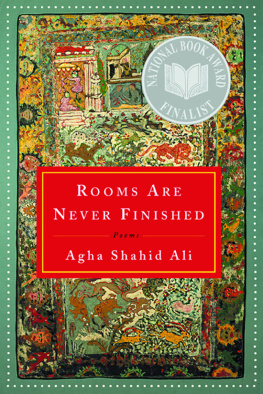
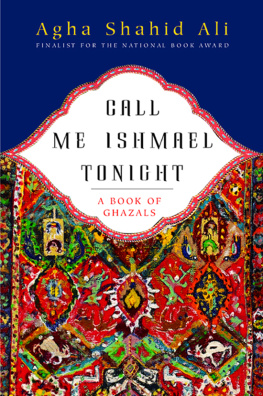

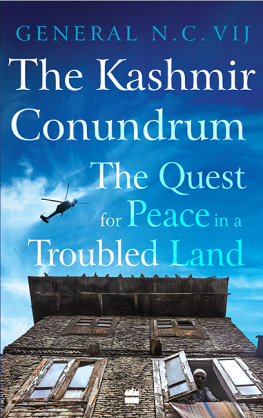
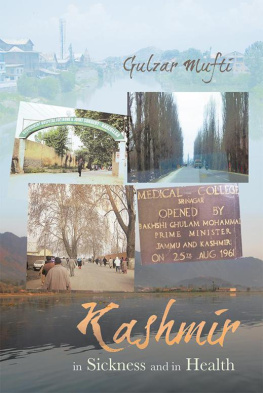
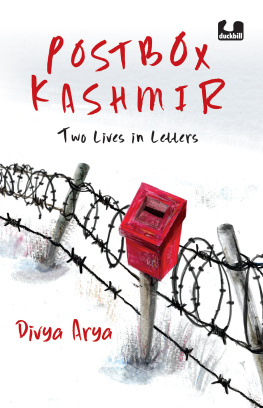
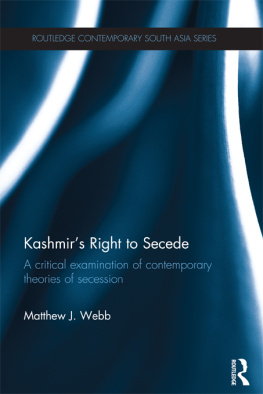
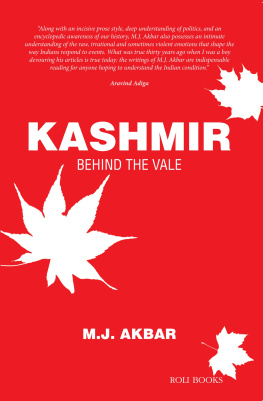
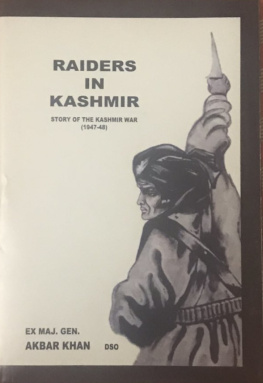
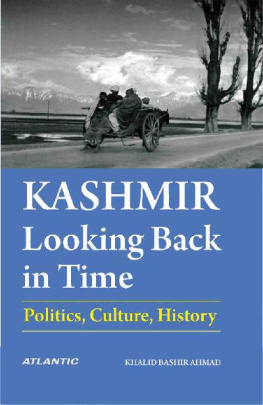
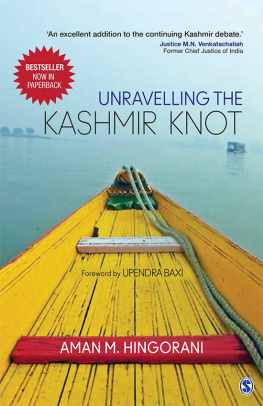
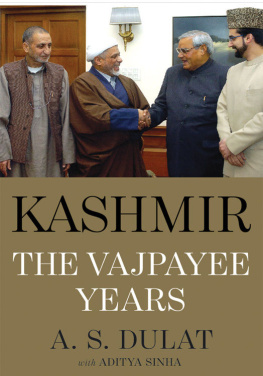
 Rooms
Rooms W. W. Norton & Company New York London Adjusting type size may change line breaks. Landscape mode may help to preserve line breaks. Also by Agha Shahid Ali POETRY Call Me Ishmael TonightThe Country Without a Post OfficeThe Belovd Witness: Selected PoemsA Nostalgists Map of AmericaA Walk Through the Yellow PagesThe Half-Inch HimalayasIn Memory of Begum Akhtar & Other PoemsBone-Sculpture TRANSLATION The Rebels Silhouette:Selected Poems (Faiz Ahmed Faiz) OTHER T. S.
W. W. Norton & Company New York London Adjusting type size may change line breaks. Landscape mode may help to preserve line breaks. Also by Agha Shahid Ali POETRY Call Me Ishmael TonightThe Country Without a Post OfficeThe Belovd Witness: Selected PoemsA Nostalgists Map of AmericaA Walk Through the Yellow PagesThe Half-Inch HimalayasIn Memory of Begum Akhtar & Other PoemsBone-Sculpture TRANSLATION The Rebels Silhouette:Selected Poems (Faiz Ahmed Faiz) OTHER T. S.